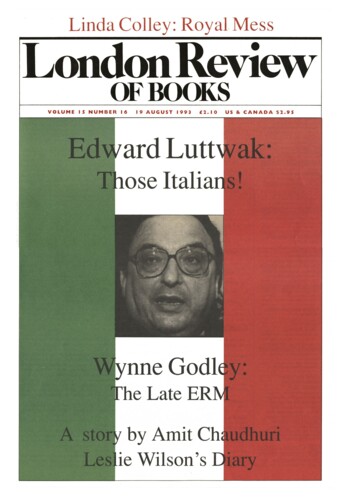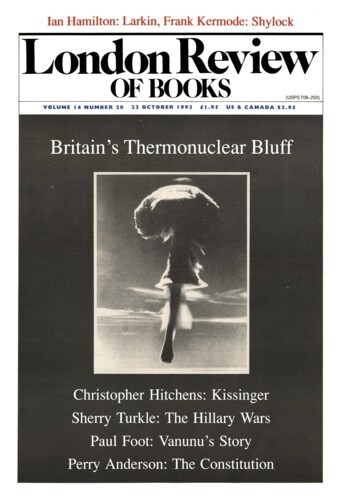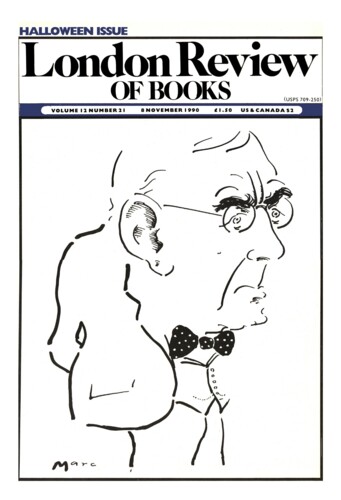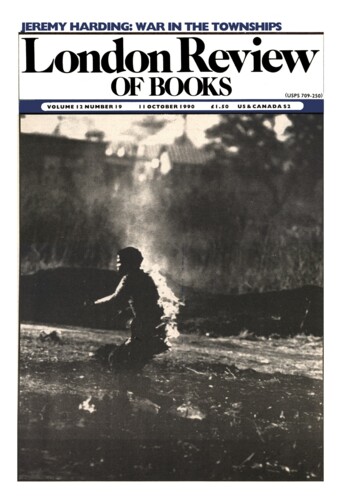Questions of Chic
Michael Mason, 19 August 1993
This year is a minor jubilee in Victorian studies: in 1973 there appeared The Victorian City: Images and Realities. Somewhat against the odds this burly two-volume compilation of essays, brought together by Jim Dyos in England and Michael Wolff in America, became a classic. Against the odds, because these essays were, in origin, conference proceedings, and there were nearly forty of them. Conventional publishing wisdom would hope for only a modest success from such a formula, but The Victorian City did what compilations of expert essays should do and hardly ever manage. The editors had re-tuned almost all the contributions and they also added dozens of superb illustrations. The result was a book which is still full of important insights about 19th-century urban Britain that remain to be explored, and of ideas for factual enquiry that remain to be exploited.





